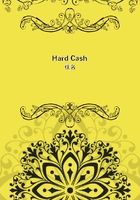
第59章
In this emergency he showed high qualities: vast financial ability, great fortitude, and that sense of commercial honour which Mrs. Dodd justly called his semi-chivalrous sentiment. He mustered all his private resources to meet his engagements and maintain his high position. Then commenced a long and steady struggle, conducted with a Spartan dignity and self-command, and a countenance as close as wax. Little did any in Barkington guess the doubts and fears, the hopes and despondencies, which agitated and tore the heart and brain that schemed, and throbbed, and glowed, and sickened by turns beneath that steady modulated exterior. And so for months and months he secretly battled with insolvency; sometimes it threatened in the distance, sometimes at hand, but never caught him unawares: he provided for each coming danger, he encountered each immediate attack. But not unscathed in morals. Just as matters looked brighter, came a concentration of liabilities he could not meet without emptying his tills, and so incurring the most frightful danger of all. He had provided for its coming too; but a decline, greater than he had reckoned on, in the value of his good securities, made that provision inadequate. Then it was he committed a _faux-pas._ He was one of his own children's trustees, and the other two signed after him like machines. He said to himself: "My honour is my children's; my position is worth thousands _to them._ I have sacrificed a fortune to preserve it; it would be madness to recoil now." He borrowed three thousand pounds of the trust money, and, soon after, two thousand more: it kept him above water; but the peril, and the escape on such terms, left him gasping inwardly.
At last, when even his granite nature was almost worn down with labour, anxiety, and struggling all alone without a word of comfort--for the price of one grain of sympathy would have been "Destruction"--he shuffled off his iron burden and breathed again.
One day he spent in a sort of pleasing lethargy, like a strong swimmer who, long and sore buffeted by the waves, has reached the shore at last.
The next day his cashier, a sharp-visaged, bald-headed old man called Young Skinner, invited his attention rather significantly to the high amount of certain balances compared with the cash at his (Skinner's)disposal.
"Indeed!" said Hardie quietly; "that must be regulated." He added graciously, as if conferring a great favour, "I'll look into the books myself, Skinner."He did more: he sat up all night over the books; and his heart died with him. Bankruptcy seemed coming towards him, slow perhaps, but sure. And meantime to live with the sword hanging over him by a hair!
Soon matters approached a crisis; several large drafts were drawn, which would have cleaned the bank out, but that the yearly rents of a wealthy nobleman had for some days past been flowing in. This nobleman had gone to explore Syria and Assyria. He was a great traveller, who contrived to live up to his income at home, but had never been able to spend a quarter of it abroad, for want of enemies and masters--better known as friends and servants--to help him. So Hardie was safe for some months, unless there should be an extraordinary run on him, and that was not likely this year; the panic had subsided, and, _nota bene,_ his credit had never stood higher. The reason was, he had been double-faced; had always spoken against railways: and his wise words were public, whereas his fatal acts had been done in the dark.